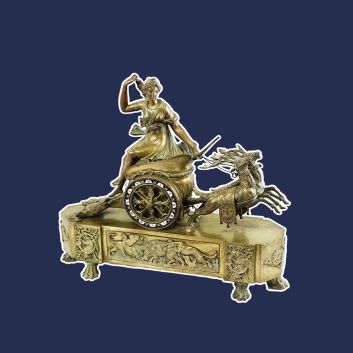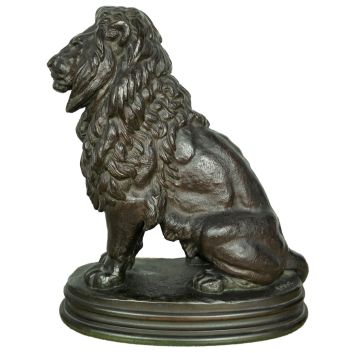Rating and value of works, sculptures by Albert-Ernest Carrier-Belleuse
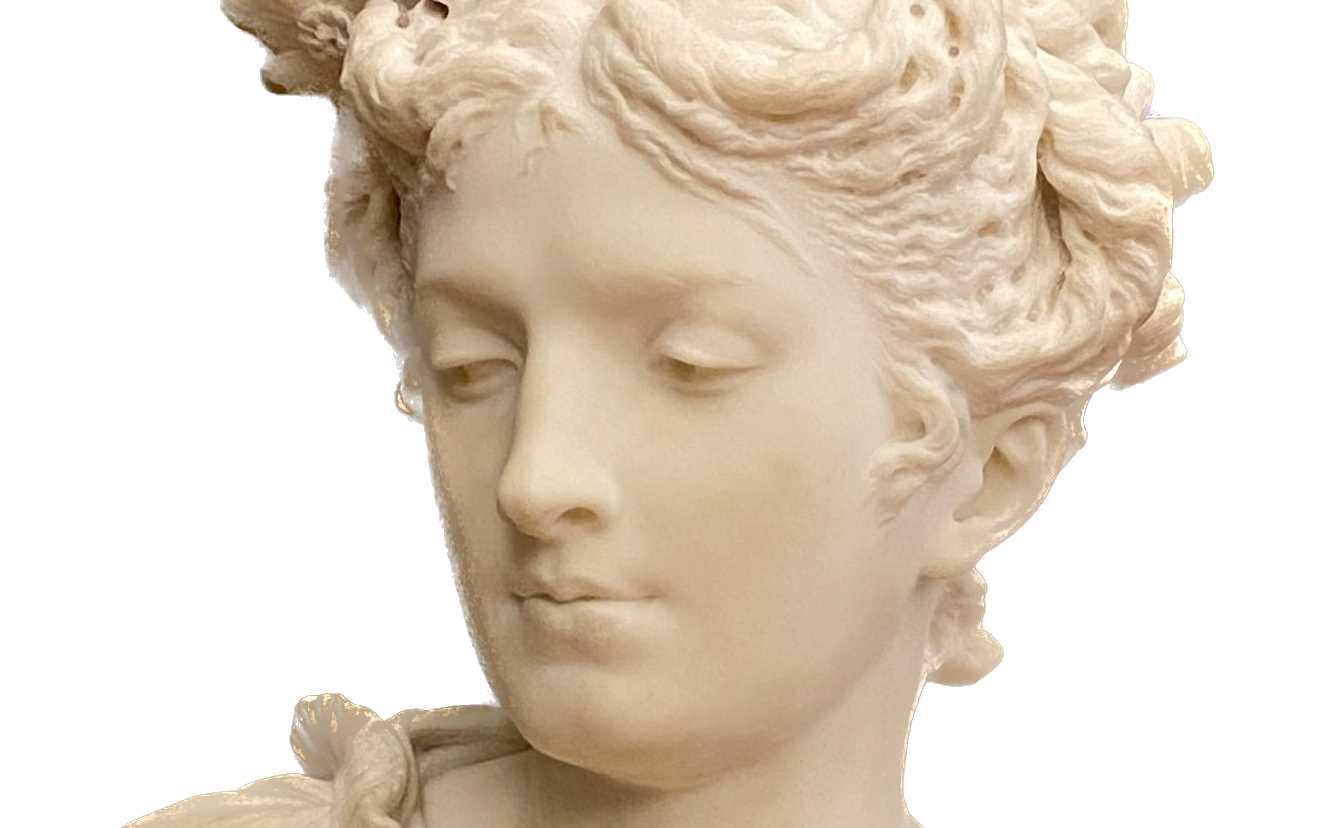
If you own a work of art by or after Carrier-Belleuse, and would like to know its value, our state-approved experts and auctioneers will offer you their appraisal services. Our specialists will carry out a free appraisal of your work, and provide you with a precise estimate of its current market value. Then, if you wish to sell your work, we'll guide you towards the best possible arrangement to obtain the optimum price.
Artist's rating and value Albert-Ernest Carrier-Belleuse
Considered one of the last classical sculptors in France, Carrier-Belleuse gained recognition during his lifetime. He followed in the artistic footsteps of David d'Angers. His legacy therefore consists mainly of sculptures in a variety of materials, especially bronze. Today, prices for his works are steadily rising under auctioneers' gavels. His sculptures are prized above all by French buyers, and the price at which they sell on the art market ranges from €70 to €72,000, a considerable delta, which nevertheless speaks volumes about the value that can be attributed to Carrier-Belleuse's works. In 2019, one of his marble sculptures sold for €108,100, whereas it was estimated at between €22,500 and €36,000.
Order of value from a simple work to the most prestigious
Technique used | Results |
|---|---|
Bronze volume | From €80 to €180,000 |
Terracotta | From €70 to €78,700 |
Marble | From €100 to €720,000 |
Response in less than 24h
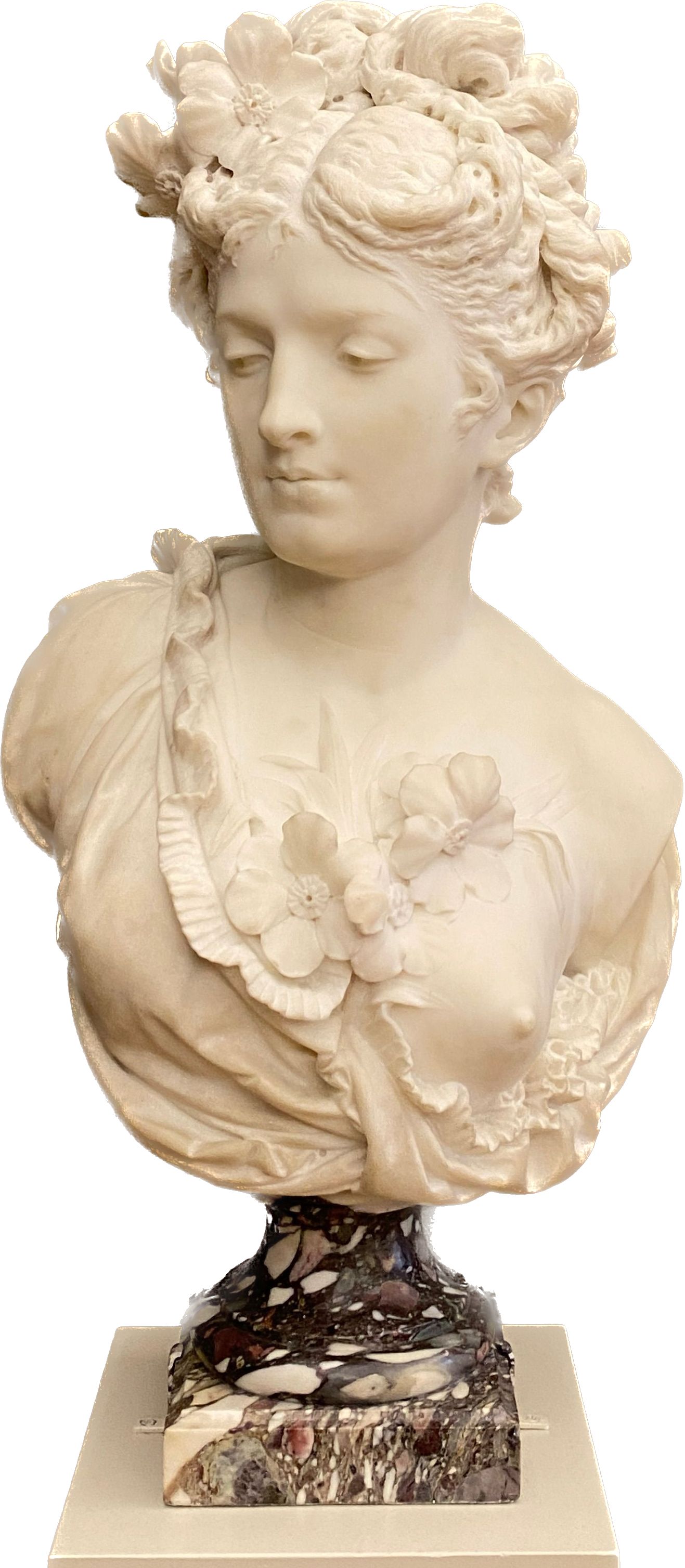
Style and technique of artist Carrier Belleuse
The artist was part of the sculptural neoclassicism movement, becoming one of the most famous and sought-after sculptors of his time. He worked extensively in marble and bronze, the latter being the material most frequently featured in his works at auction.
The life of Carrier-Belleuse
Albert-Ernest Carrier-Belleuse (1824-1887), a French artist, became an important figure in the 19th-century art world, and was the most sought-after sculptor of the Second Empire. His father was a notary and he was born in the Aisne region. His father died when he was ten, and his family was unable to support him. Étienne and François Arago took charge of his education.
He began his training with an apprenticeship with Bauchery, a chaser. He also studied goldsmithing with Jacques Henri Fauconnier. François Arago introduced him to David d'Angers, who helped him enter the Beaux-Arts de Paris. Numerous bronze houses took notice of his work, and he was soon in demand for numerous commissions for candelabras, clocks and cartels.
He has an affair with watercolorist Anne-Louise Adnot, whom he marries some time later, and exhibits at the Salon des Artistes Français for the first time in the same year. During a stay in England, he becomes director of Mintons. He returned to France and set up his own studio in what is now the 9th arrondissement of Paris. He became famous for his marbles, some of which were exhibited at the Salon and purchased by Napoleon III. The French state also bought furniture with religious themes from him to decorate churches. He was also a building decorator, like Louis Ernest Barrias. He created decorative sculptures for the Louvre Palace and the Brussels Stock Exchange, among others.
He joined the national committee of the Société des Beaux-Arts, and in 1973 took part in the construction of the Opéra, thanks to Charles Garnier and the support of Napoleon III.
Carrier-Belleuse's imprint on his period
Carrier Belleuse proved in France that classical sculpture was still alive and well. Like the Italians of the Renaissance, he drew inspiration from antique subjects and used their techniques. On today's art market, his bronzes are highly prized, and his marbles even more so.
He left a unique legacy, thanks to the artists he trained in his studio, including Auguste Rodin, and passed on his artistic vein to the Sèvres factory, where he was director at the end of his career.
Recognizing the Carrier-Belleuse signature
Carrier-Belleuse usually signs his sculptures "Carrier". There are, however, many copies, which is why expertise is important.
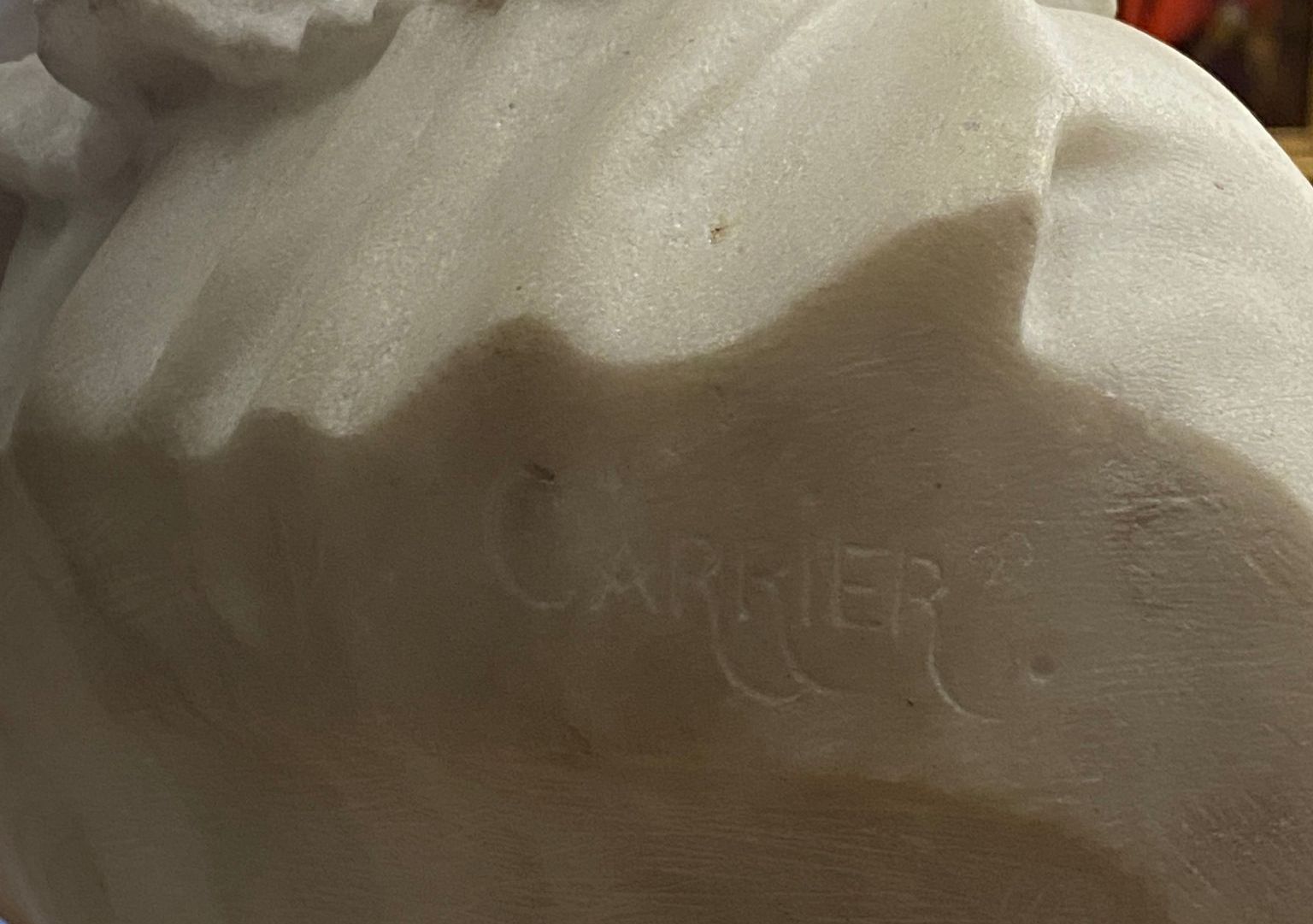
Knowing the value of a work
If you happen to own a work by or after Carrier-Belleuse, don't hesitate to request a free appraisal using the form on our website. A member of our team of experts and certified auctioneers will contact you promptly to provide you with an estimate of the market value of your work, as well as ad hoc information about it. If you're thinking of selling your work, our specialists will also be on hand to offer you alternatives for selling it at the best possible price, taking into account market trends.
Response in less than 24h
Related topics
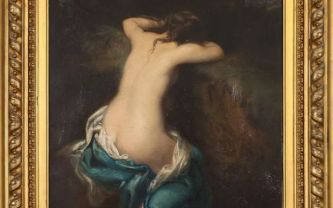
The value of the paintings and drawings by Benedict Mass...
Rating and value of Bénédict Masson, an artist belonging to the French school of the 19th century.
Read more >
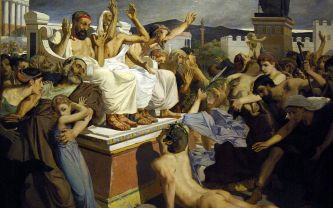
The value of works, paintings by Olivier Merson
Luc Olivier Merson is one of the last neoclassical historical painters. His works are still valued and quoted.
Read more >

Cote et valeur des tableaux, dessins, peintures de Alexandre...
Alexandre Marie Guillemin was a 19th-century Romantic and naturalist painter who produced a number of oil-on-canvas paintings that are highly prized at auction.
Read more >
Secure site, anonymity preserved
State-approved auctioneer and expert
Free, certified estimates
